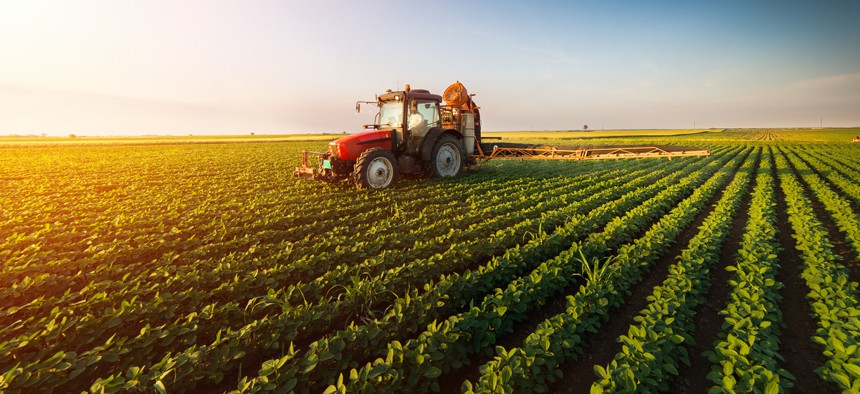Farmers to Congress: We Need Broadband, Too

Fotokostic/Shutterstock.com
Agriculture and energy companies in rural areas want to find efficiencies with internet of things devices, but lack of high-speed access is a problem
Rural companies that rely heavily on internet-connected devices need access to high-speed broadband to improve productivity and grow the economy, industry leaders said.
Executives from the agriculture and energy sectors told a Senate panel that without a fast and reliable internet connection, businesses in their industries find themselves at a competitive disadvantage, lacking crucial information provided through the internet of things.
Closing gaps in wired and wireless broadband coverage nationwide would increase efficiency in their industries and spur growth in pockets of the country left behind by the 21st century economy, they said.
Most people may not associate agriculture with broadband, but today’s farmers increasingly rely on internet access to do their jobs, said Timothy Hassinger, president and chief executive officer of the Lindsay Corporation, an irrigation system manufacturer. Through IoT devices, farmers are able to monitor the weather, analyze soil and moisture conditions, and irrigate more efficiently.
By collecting and monitoring this data, farmers can cut down on energy and water usage while boosting crop yields. Hassinger said his company’s researchers estimated the benefits of IoT could lead to a $40 increase in profit per acre, which can be invested back in the farms or local communities.
“Respectfully, senators, could you do your job without access to the internet?” he asked. “Probably not, and neither can our nation’s farmers.”
However, the Agriculture Department found that this year, nearly 30 percent of farmers lack access to fast and reliable internet, leaving them unable to collect and analyze environmental data. Without broadband coverage, these farmers will fall further behind their competitors as technology continues to advance, according to Hassinger.
Oil and gas companies also rely heavily on the internet of things to monitor drill sites and to coordinate and deploy workers in the field, said David Armitage, founder and CEO of Cartasite. Because the industrial IoT helps the energy industry streamline its business processes, enhance safety and reduce environmental impact, spotty network coverage can have a huge negative impact, he said.
The FCC estimates more than 34 million Americans don’t have access to high-speed internet service, the vast majority of whom live in rural, less densely populated areas where broadband is more expensive to deploy. But the agency is looking for ways to incentivize providers to make the investment, which they believe will positively impact local economies and quality of life.
While both executives support government initiatives to deploy more broadband infrastructure, they stressed the importance of understanding the current coverage environment first. As the FCC looks to update its maps of network access across the country, Armitage believes the private sector may be able to help.
“The oil and gas industry, by moving individuals around rural America, is sampling the quality of coverage continuously,” he told Nextgov. “Why not [connect to] that stream of information and use it to help inform us about where coverage is weakest. That would be a cool, interesting collaboration between industry and government.”






